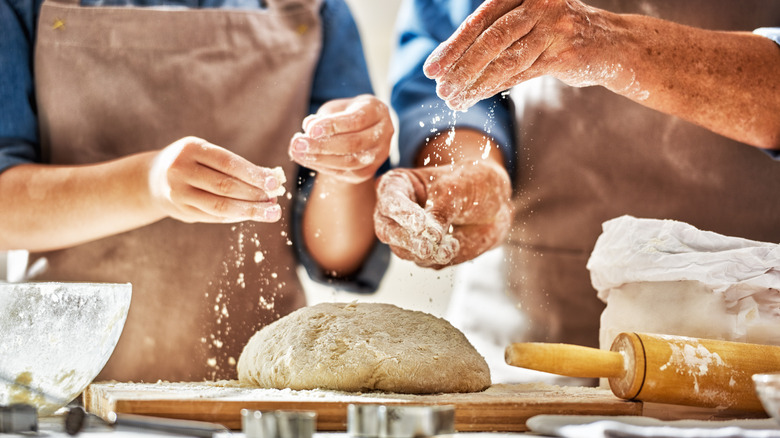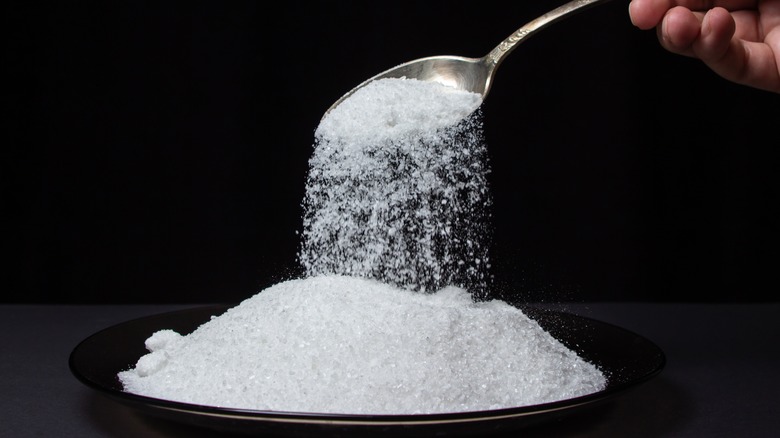There's A Reason Many Baking Recipes Call For Table Salt
Kosher salt, table salt, sea salt, and flaked salt—there are as many salts to choose from as there are recipes. Which salt you should be cooking with is a very divisive subject, as new salt trends cycle through the foodie community pretty often. (And no, we're not talking about "Salt Bae.") A famous TikTok chef will sing the praises of Kosher salt, a clean-tasting salt with minimal processing, while food brand darlings like Momofuku offer their savory salt as the newest and hottest secret ingredient.
Bakers aren't immune to the world of trendy salts. When was the last time you could search for a caramel recipe without the word "salted" slapped in front of it? Or stumble upon an "elevated" chocolate chip cookie recipe that required a healthy sprinkle of flaked salt after baking? Still, when you get down to the nuts and bolts of a baking recipe, they almost always call for plain-Jane table salt. Why?
You may think a complicated answer would follow, but in the world of baking all you have to consider is the way that salt affects batters and doughs.
The baker's salt of choice
With batters for cakes and quick bread, bakers want a salt that will dissolve quickly and evenly. Why? Because these tender baked goods require delicate mixing to activate as little gluten as possible.
This is equally true for soft cookie doughs and brownie batter because over-mixing leads to tough desserts. Keeping in mind that their ingredients won't be as thoroughly mixed as in other recipes, bakers require a salt that will incorporate smoothly, i.e. have a smaller granular size like table salt. If, for example, you're making a delicate sponge cake, you must sift your dry ingredients to break up any clumps in the flour. If you add to this a coarse Kosher salt, you won't be able to sift it. You can use another salt, but you risk uneven seasoning and over-mixing.
Salt has a more complicated relationship with yeasted dough. While too much salt could stymie the reaction, essentially all bread recipes need salt for controlling the fermentation rate, strengthening gluten bonds, and ensuring a browned, crackly crust. Bakers are encouraged to reach for table salt, as it easily dissolves in bread dough, as opposed to the larger-grained Kosher or rock salts. If you'd like to use another kind of salt, the gods of boulangerie beg that you at least measure by gram weight because baking bread is a science, after all.
So, the next time you plan to make a substitution in your baking recipe, think twice before swapping salts.

